Activists Call On Iranian Political Prisoner To Stop His Hunger Strike
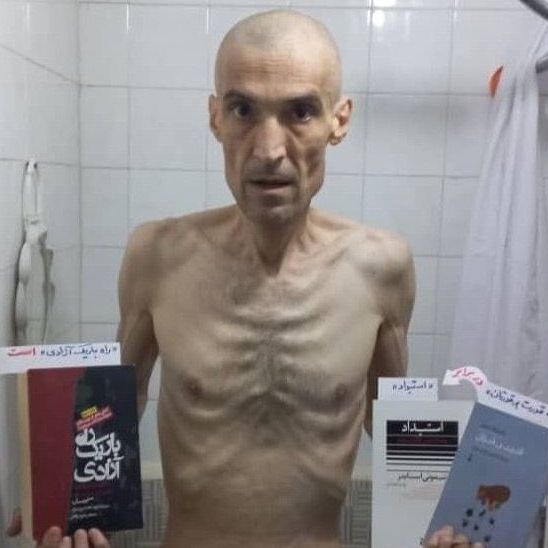
Human rights activists have expressed concern about the health of political prisoner Farhad Meysami asking him to end his hunger strike.

Human rights activists have expressed concern about the health of political prisoner Farhad Meysami asking him to end his hunger strike.
Meysami, 53, who has been in jail since 2018 for supporting women activists protesting against Iran's forced hijab policy, began his hunger strike on October 7 to protest recent government killings of demonstrators, the dissident's lawyer said.
Social media images purported to be of an emaciated Meysami have caused outrage online as supporters warned on Friday, he risks death for protesting hijab and opposing the death penalty.
Also, 380 female rights activists wrote a letter Saturday asking him to end his hunger strike.
"When relentless violence does not stop its continuous attack, one must survive to resist," they said in the letter.
"We call for your demands and will not stop fighting the oppression until they are realized," reads the letter.
At the same time, a campaign was launched by "a group of friends and supporters of Farhad Meysami" to collect signatures about his dire situation and the call for his immediate release. About seven thousand people have signed the petition so far.
On Friday, Amnesty International also called for Meysami’s "immediate and unconditional" release.
However, Iran's judiciary denied that he was on hunger strike and said the photos were from four years ago when Meysami, a physician, did go on hunger strike.
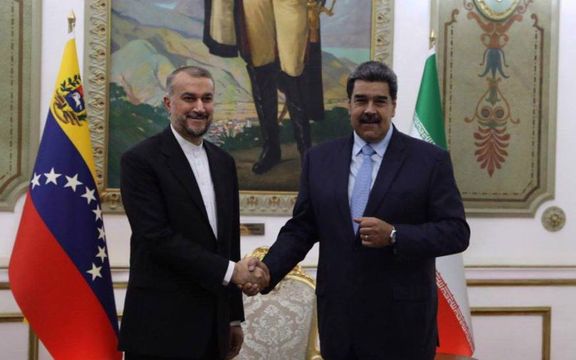
State firms from Iran and Venezuela will start in the coming weeks a revamp of the South American nation's largest refining complex to restore its crude distillation capacity.
Reuters quoted four sources close to the plan on Friday saying that the effort by state oil firm Petroleos de Venezuela (PDVSA) and the state-owned National Iranian Oil Refining and Distribution Company (NIORDC) to boost fuel output at the Paraguana Refining Center marks a step toward ending Venezuela's reliance on US refinery technology.
The two sides are expected to ink in the coming weeks a 460-million-euro contract to overhaul the 955,000-bpd Paraguana refinery complex on the coast of western Venezuela.
Iran's Foreign Minister Hossein Amirabdollahian arrived in Caracas on Friday and met Venezuela's oil minister Tareck El Aissami.
Venezuela, which has the world's largest crude reserves, has struggled in recent years to produce enough gasoline and diesel due to refinery outages, a lack of investment and US sanctions.
At least 400 Iranian workers will work alongside between 1,000 and 1,500 local staff and contractors in this project, the sources said.
Venezuelan officials are responsible to find temporary housing and vehicles for the workers, including the possibility of building a camp close to Paraguana.
The Islamic Republic has boosted relations with Venezuela in recent years, providing crude and condensate as well as parts and feedstock for Venezuela's aging 1.3 million barrel per day oil refining network.
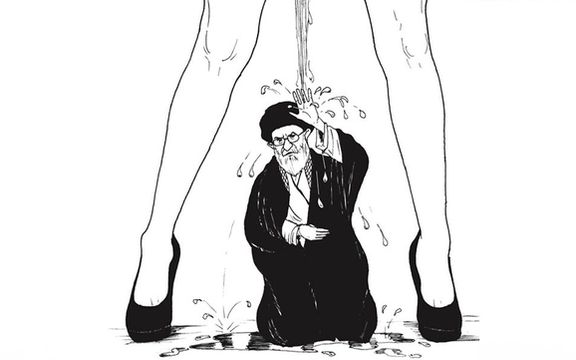
Security researchers at Microsoft say an Iranian regime-backed hacking team apparently stole and leaked data from the French satirical magazine Charlie Hebdo.
Clint Watts, the general manager of Microsoft's Digital Threat Analysis Center, said Friday that the hackers, who called themselves "Holy Souls," were from Iranian cybersecurity firm Emennet Pasargad.
Emennet Pasargad was the employer of two Iranians, Mohammad Hosein Musa Kazemi and Sajjad Kashian, who were indicted by the United States Justice Department in November 2021.
They allegedly conducted a cyber campaign "to intimidate and influence American voters, and otherwise undermine voter confidence and sow discord" during the 2020 US presidential election.
In early January Holy Souls announced they had obtained the personal information of more than 200,000 Charlie Hebdo customers and published a sample of the data as proof.
It came after the magazine published a series of cartoons that negatively depicted Iran's Supreme Leader Ayatollah Khamenei. The caricatures were part of a media campaign that Charlie Hebdo said was intended to support anti-government protests in Iran that swept the country following the death in custody of Mahsa Amini in mid-September.
Iran publicly vowed an "effective response" to the "insulting" cartoons, and summoned the French envoy in Tehran, while also ending activities of the French Institute of Research in Iran and saying it was re-evaluating France's cultural activities in the country.
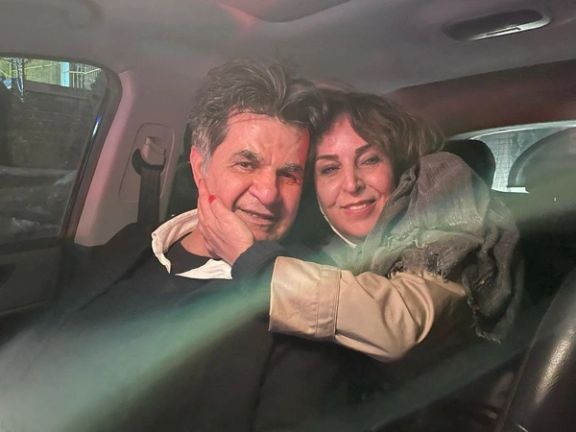
Prominent Iranian film director Jafar Panahi was released on bail on Friday after he started a hunger strike to demand to be freed pending a retrial.
The Directors Guild of Iran announced his release on Friday a day after he had embarked on the hunger strike, adding that his sentence has been declared void by the country’s Supreme Court.
“I firmly declare that in protest against the illegal and inhumane behavior of the judicial and security apparatus and their hostage-taking, I have started a hunger strike since the morning of February 1… I will refuse to eat and drink any food and take medicine until the time of my release,” read a statement he sent to his wife.
The director was imprisoned in early July after going to Evin prison to enquire about the whereabouts of other renowned filmmakers Mohammad Rasoulof and Mostafa Al-Ahmad following their arrest a few days earlier.
Later, it was announced the authorities had decided to reactivate a six-year sentence originally meted out to Panahi in 2010 alongside a 20-year filmmaking and travel ban.
The charges were connected to his attendance at the funeral of a student who was shot dead in 2009 during the Green Movement protests and his later attempt to shoot a feature about the uprising.
In October, Iran’s Supreme Court announced that Panahi’s sentence had passed the country’s ten-year statute of limitations. Accordingly, this should have granted Panahi immediate release, but he is still behind bars.
Panahi has won several international awards, including the 2015 Berlin Film Festival's Golden Bear for his film "Taxi".
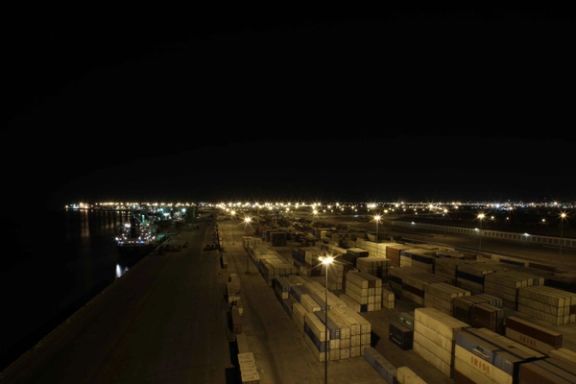
Iran’s Customs Administration says at least eight million tons of essential goods have been piling up on ships anchored off the country's southern ports apparently mainly due to payment issues.
According to a report by Tasnim news agency, affiliated with the Revolutionary Guard, the deputy head of the Customs Administration has recently said that ships are stranded at ports – mainly at Bandar-e Emam Khomeyni (Imam Khomeini port) in the Khuzestan province and Bandar Abbas in Hormozgan province -- waiting to unload their cargo.
The official said that the goods, a large part of which are food and animal feed, cannot be unloaded also due to a lack of permits necessary for them to be cleared. Some of the essential goods need three or four permits from the Ministry of Health, Standard organization and Plant Protection Organization, which oversees the quarantine processes.
He said that about 1,800 to 2,000 trucks are being loaded every day and transferred from Imam Khomeini port, but the number of the trucks does not seem to be enough to avoid the blockage.
But the main impediment for clearance of these goods has been lack of foreign currency for a long time. Importers need to receive US dollars or other foreign currencies from the government to pay suppliers before the ships would anchor at the ports and discharge their cargos. Iran is currently in a crisis for not having enough foreign currency and the US dollar has reached a historic high. One dollar can buy 450,000 Iranian rials, while five years ago the exchange rate was around 35,000.
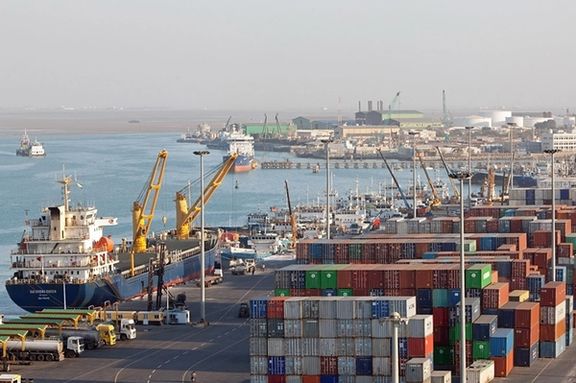
The ships have to declare their goods first, and then the customs administration should remove the obstacles in the way of their clearance within seven days, but the process is not working smoothly. But the suppliers of the goods await payment first before ordering the ships to dock.
Since the government has removed the subsidy in the form of cheap dollars for the essential goods, many importers face difficulties providing the needed foreign currency.
In January, Iran’s judiciary chief Gholam Hossein Mohseni Ejei said tens of ships have arrived in territorial waters of the country, but the Islamic Republic cannot unload them therefore the country must pay fines for the delay in discharging cargos. The delay in payments is the main reason that has disrupted flows of goods into the country.
Most ships should receive full payment right before they dock at a port to unload their cargo. If payment is not arranged, the ships wait off the coast. “Some of these ships are paid $25,000-65,000 per day as demurrage,” noted Ejei.
Some of these goods, which are not unloaded, added Ejei, “are damaged due to long waits by the ships, but these goods are necessary for the country,” he underlined.
Iran's currency has dropped by 30 percent since September and both the government and private importers face a financial crunch.
Food is exempt from the US sanctions on Iran over its nuclear program, but the impact of the sanctions on Iran's financial system have created complex payment arrangements with international companies.
Reuters reported on December 21, that dozens of merchant ships with grains and sugar are stuck outside Iranian ports after weeks of delays in payment.
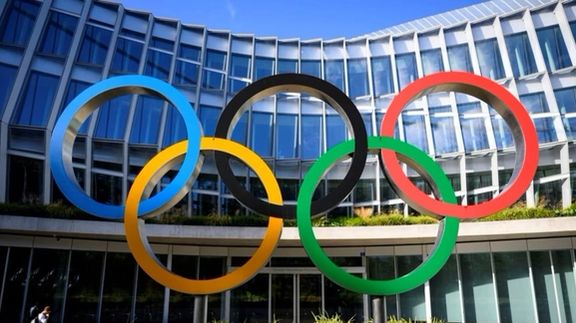
The International Olympic Committee has relayed its serious concerns to the Iranian Olympics committee regarding the safety of athletes and discrimination in sports.
In a press release issued February 2, the IOC said a meeting was held with the head of Iran’s national Olympics committee where “intensive discussions took place,” and questions asked about the Iranian NOC protecting athletes and ensuring there is no discrimination “vis-à-vis any other athletes.”
The issue of discrimination refers to the Islamic Republic government forbidding athletes to compete against their Israeli peers, often by feigning sickness or injury and throwing games.
Many Iranian athletes were arrested during recent antigovernment protests and face serious charges, often brought by security and intelligence outfits without a fair chance of defense.
The IOC also raised the issue of government rules for athletes to provide financial guarantees when they are sent to compete abroad. More than 30 Iranian athletes have defected in the past four years and the government wants to penalize those who might choose to stay abroad.
“The IOC President stressed the importance of non-discrimination in every aspect and insisted on the full observance of the Olympic Charter by the NOC,” the international committee said in its release.
The Iranian side “made clear commitments to abide by the rules and the Olympic Charter, IOC said. However, sports is under the direct control of the government, and in many instances, the Revolutionary Guard and the Iranian Olympics committee would be hardly able to deliver its promises.